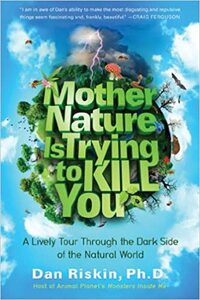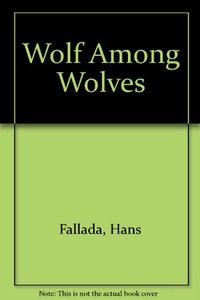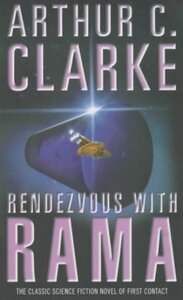You need to sign in or sign up before continuing.
Take a photo of a barcode or cover
adam_mcphee's Reviews (2.87k)
All of his stories are well told and have a depth that other books should envy. My only problem is that the subject matter never changes. Always with the forlorn family on the windswept cliff. He's knows Nova Scotia so well, but it's a shame he never really sets foot outside the province, and so his stories all sort of run together after a while and start to remind you of Kate Beaton's criticism of Maritime literature.
I like Lord of the Rings-style fantasy novels - the ones that aren’t dreck - but I always had the feeling that all of the protagonists must’ve been complicit in some horrible atrocities, because the existence of non-white skinned people is never alluded to, unless they’re evil. But Le Guin writes about all kinds of people, and they do magic and fight demons and go sailing.
Excellent short stories featuring believable people from Vancouver's Downtown Eastside. My favourite was the manically paced Goodbye Porkpie Hat, about a crack addict who receives an unlikely visit from nuclear scientist J. Robert Oppenheimer, who is interested in procuring some crack for himself. Christie excels at writing the down and out as well as the mentally unhinged. King Me is what Shutter Island should have been and Discard is a heartbreakingly sad story about a grandfather trying to help his homeless grandson.
There's only one dud in nine stories, titled The Queen of Cans and Jars. Though An Ideal Companion gets kind of sappy. The stories about working and middle class people just don't hold up to the stories that feature homelessness or mental instability.
There's only one dud in nine stories, titled The Queen of Cans and Jars. Though An Ideal Companion gets kind of sappy. The stories about working and middle class people just don't hold up to the stories that feature homelessness or mental instability.
Corruption and weakness in the German countryside.
The book treads lightly around political topics, unsurprising given that Fallada wrote it 1937 when the Nazis were in charge. The novel is set in 1923, during the Weimar Republic's period of rampant inflation, a sort of safe topic given that it was a period no one in Germany recalled fondly.
The novel is huge. Any one of the seemingly dozens of supporting characters could be the protagonist of their own novella. My favourites: Rittmeister Herr von Prackwitz, a Homer Simpson or Ignatius Reilly of the Weimar Republic who is doomed to failure and obliviousness, most the book's action stems from his inability/refusal to run a farming estate leased from his father-in-law; Black Meier, a farming bailiff turned rogue; Lieutenant Fritz, whose secret arms cache is known to everyone in the village and whose Putsch is doomed to failure; Kniebusch, the aging forester who just wants the respect due his age and a stable currency that would allow him even a sham of a retirement; Sophie, a scheming former handmaid who helps orchestrate her lover's escape from prison; The mad baron and the doctor in charge of him, I forget their names but their antics in Berlin and a Sanatorium are quite memorable.
I was a little bit disappointed that Petra and Studdman seemed to become less important characters over time. I'd have liked to see more of the Rag and Bones and Sanatorium businesses.
Perhaps my favourite scene in the entire novel is the Rittmeister's walk in the forest with his daughter, where they encounter the lieutenant. Each of the character's motives are completely at odds with the others, but they're all so wrapped up in themselves as to be unable to see what's going on. It's hilarious.
Also I can't help but wonder if the moralizing widow (or spinster?) who lives with the Geheimerat is a thinly-veiled self-criticism. She speaks mostly in parables and references to fables, and most people ignore her or don't take her seriously. Fallada had tried to avoid criticism and undue attention after the Nazi's rise to power by writing only fables and children's stories, which were never popular.
All in all, I think it's my second favourite Fallada novel, after Every Man Dies Alone.
The book treads lightly around political topics, unsurprising given that Fallada wrote it 1937 when the Nazis were in charge. The novel is set in 1923, during the Weimar Republic's period of rampant inflation, a sort of safe topic given that it was a period no one in Germany recalled fondly.
The novel is huge. Any one of the seemingly dozens of supporting characters could be the protagonist of their own novella. My favourites: Rittmeister Herr von Prackwitz, a Homer Simpson or Ignatius Reilly of the Weimar Republic who is doomed to failure and obliviousness, most the book's action stems from his inability/refusal to run a farming estate leased from his father-in-law; Black Meier, a farming bailiff turned rogue; Lieutenant Fritz, whose secret arms cache is known to everyone in the village and whose Putsch is doomed to failure; Kniebusch, the aging forester who just wants the respect due his age and a stable currency that would allow him even a sham of a retirement; Sophie, a scheming former handmaid who helps orchestrate her lover's escape from prison; The mad baron and the doctor in charge of him, I forget their names but their antics in Berlin and a Sanatorium are quite memorable.
I was a little bit disappointed that Petra and Studdman seemed to become less important characters over time. I'd have liked to see more of the Rag and Bones and Sanatorium businesses.
Perhaps my favourite scene in the entire novel is the Rittmeister's walk in the forest with his daughter, where they encounter the lieutenant. Each of the character's motives are completely at odds with the others, but they're all so wrapped up in themselves as to be unable to see what's going on. It's hilarious.
Also I can't help but wonder if the moralizing widow (or spinster?) who lives with the Geheimerat is a thinly-veiled self-criticism. She speaks mostly in parables and references to fables, and most people ignore her or don't take her seriously. Fallada had tried to avoid criticism and undue attention after the Nazi's rise to power by writing only fables and children's stories, which were never popular.
All in all, I think it's my second favourite Fallada novel, after Every Man Dies Alone.
The absent aliens (my favourite kind, because you get to have aliens without making guesses that are bound to be dumb about what they'll be like) send an automated O'Neill Cylinder (my favourite kind of theoretical space habitat).









